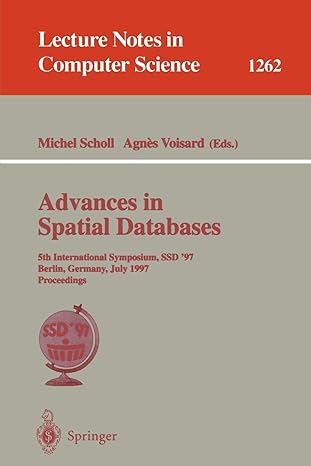Question
1. Arithmetic operations (10 points) Write a program for subtraction of lena_edit.raw from lena.raw. Export lena_subtraction.raw as an output file. 2. Point processing (10 points)
1. Arithmetic operations (10 points) Write a program for subtraction of lena_edit.raw from lena.raw. Export lena_subtraction.raw as an output file. 2. Point processing (10 points) Write a program for generating a negative version of lena.raw. Export lena_negative.raw as an output file. 3. Geometric transformations (15 points) Write a program for translating lena.raw by 5 pixels for both x- and y- direction. Export lena_translation.raw as an output file. 4. Histogram processing (20 points) Write a program for histogram equalization by taking lena.raw as an input. Export lena_histequal.raw as an output file.
#include
void Read2DUCharImg(char *lean.raw, unsigned char **img, int dim_x, int dim_y) { FILE *fp; int i;
fp = fopen(lean.raw, "rb");
for (i = 0; i < dim_y; i++) fread(img[i], sizeof(unsigned char), dim_x, fp); fclose(fp); }
void Write2DUCharImg(char *lean.raw, unsigned char **img, int dim_x, int dim_y) { int i, k; FILE *fp; fp = fopen(lean.raw, "wb");
for (i = 0; i < dim_y; i++) fwrite(img[i], sizeof(unsigned char), dim_x, fp); fclose(fp); }
unsigned char **UCalloc2d(int i_size, int j_size) { unsigned char **array; int i;
array = (unsigned char **)calloc(i_size, sizeof(unsigned char *));
for (i = 0; i < i_size; i++) array[i] = (unsigned char *)calloc(j_size, sizeof(unsigned char));
return(array); }
void UCfree2d(unsigned char **array, int i_size) { int i;
for (i = 0; i < i_size; i++) free(array[i]);
free(array); }
float **Falloc2d(int i_size, int j_size) { float **array; int i;
array = (float **)calloc(i_size, sizeof(float *));
for (i = 0; i < i_size; i++) array[i] = (float *)calloc(j_size, sizeof(float));
return(array); }
void Ffree2d(float **array, int i_size) { int i;
for (i = 0; i < i_size; i++) free(array[i]);
free(array); }
int main(int argc, char *argv[]){ int function_num;
unsigned char **inputimg, **outputimg, **tempimg; char inputfilename[100], outputfilename[100]; FILE *fp;
int dim_x, dim_y; int i, j; int num_intensity_level = 256; int max_intensity = num_intensity_level-1;
int* histogram_bins; float* histogram; float* cumul_hist; int* trans_func;
float **gauss; // gaussian kernel float **laplacian; // laplacian kernel int smooth_kernel_size = 5; int laplacian_kernel_size = 3;
float sigma = 2.0; float K = 25.0 / 15.0;
dim_x = 512; dim_y = 512;
inputimg = UCalloc2d(dim_y, dim_x); outputimg = UCalloc2d(dim_y, dim_x); tempimg = UCalloc2d(dim_y, dim_x);
strcpy(inputfilename, "lena.raw"); strcpy(outputfilename, "lena_output.raw");
histogram_bins = (int*)calloc(num_intensity_level, sizeof(int)); histogram = (float*)calloc(num_intensity_level, sizeof(float)); cumul_hist = (float*)calloc(num_intensity_level, sizeof(float)); trans_func = (int*)calloc(num_intensity_level, sizeof(int));
gauss = Falloc2d(smooth_kernel_size, smooth_kernel_size); laplacian = Falloc2d(laplacian_kernel_size, laplacian_kernel_size);
// histogram for (i = 0; i < num_intensity_level; i++) { histogram_bins[i] = 0; cumul_hist[i] = 0.0; trans_func[i] = 0.0;
// Add histogram computation and processing }
// Gaussian kernel // To do: Set Gaussian kernel values
// Laplacian kernel // To do: Set Laplacian kernel values
// read input image Read2DUCharImg(inputfilename, inputimg, dim_x, dim_y);
// Choose function function_num = 1;
switch (function_num) { case 1: // Call function 1 break; case 2: // Call function 2 break; case 3: // Call function 3 break; default: break; }
Write2DUCharImg(outputfilename, outputimg, dim_x, dim_y);
UCfree2d(inputimg, dim_y); UCfree2d(outputimg, dim_y); UCfree2d(tempimg, dim_y);
free(histogram_bins); free(histogram); free(cumul_hist); free(trans_func);
Ffree2d(gauss, smooth_kernel_size); Ffree2d(laplacian, laplacian_kernel_size);
return EXIT_SUCCESS; }
Step by Step Solution
There are 3 Steps involved in it
Step: 1

Get Instant Access to Expert-Tailored Solutions
See step-by-step solutions with expert insights and AI powered tools for academic success
Step: 2

Step: 3

Ace Your Homework with AI
Get the answers you need in no time with our AI-driven, step-by-step assistance
Get Started


